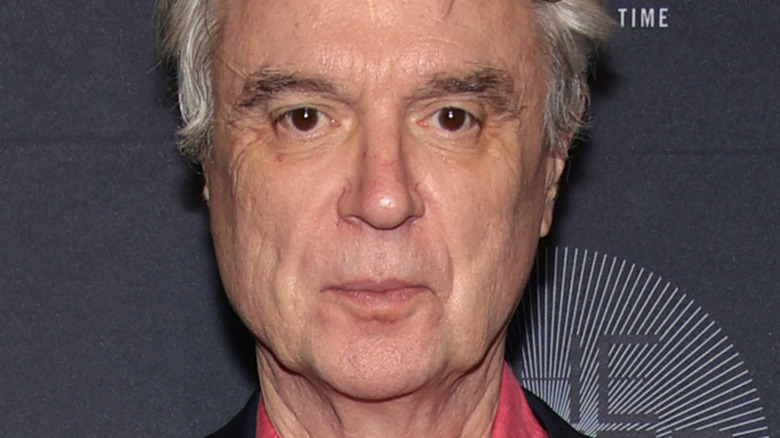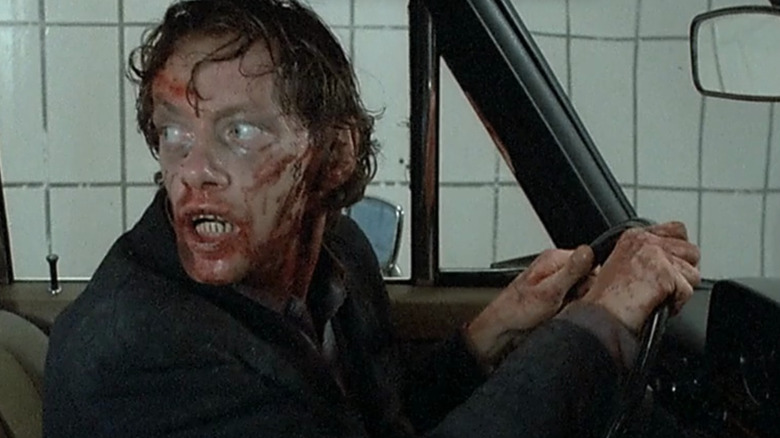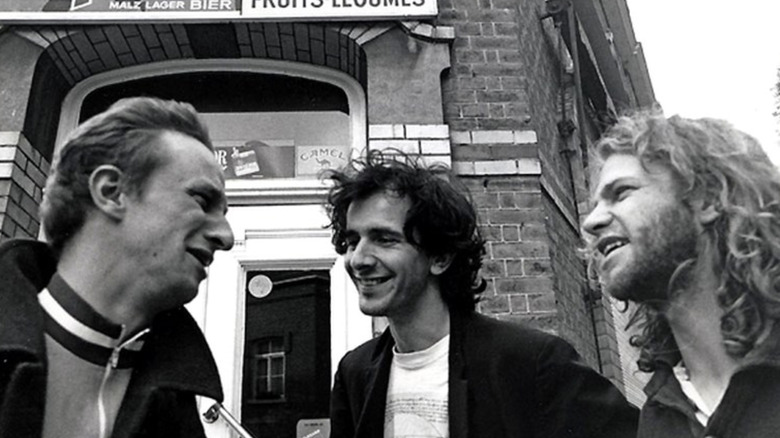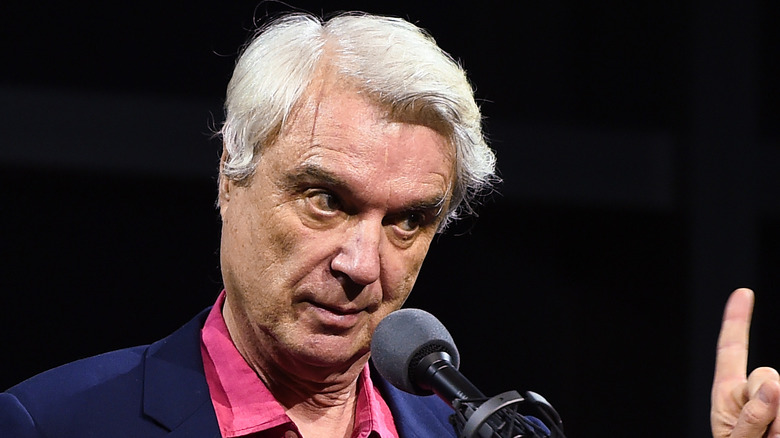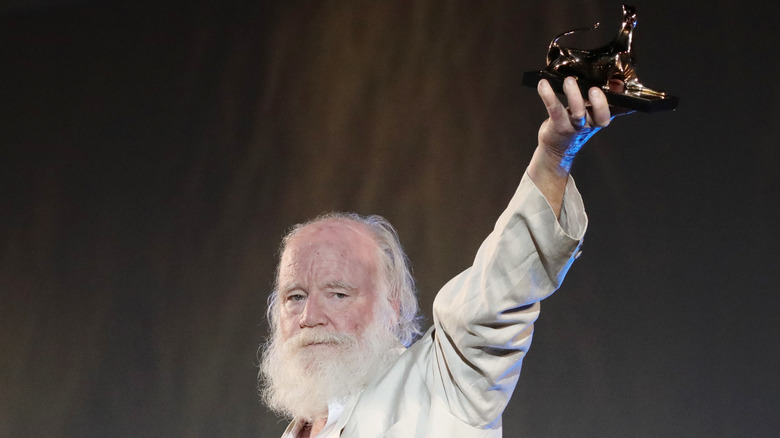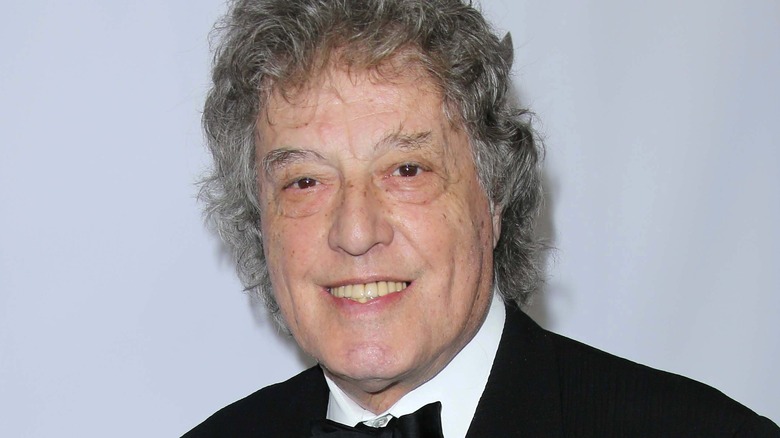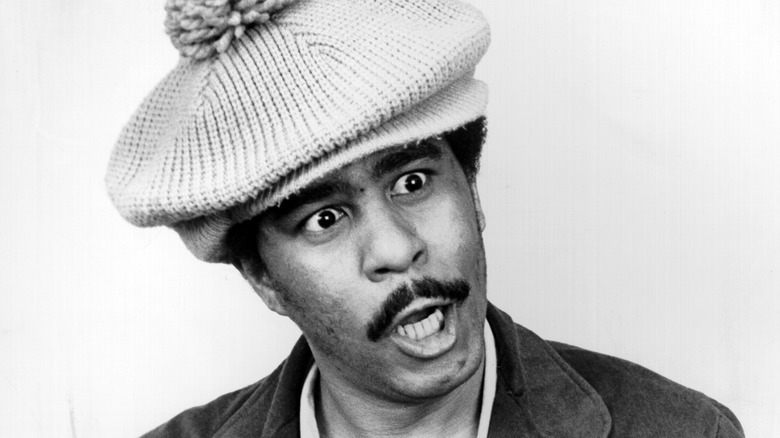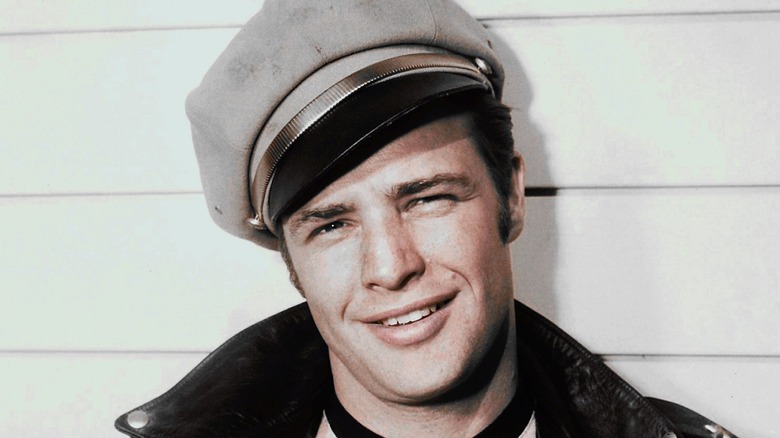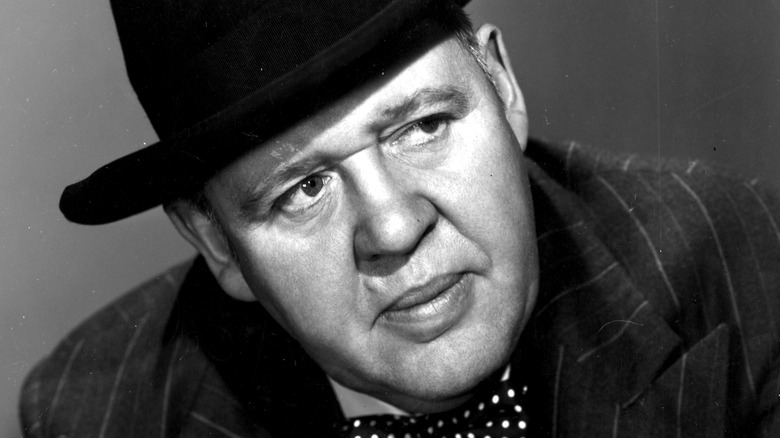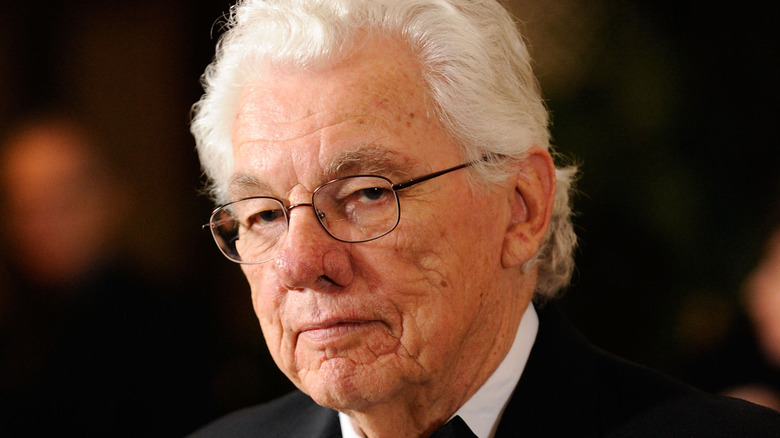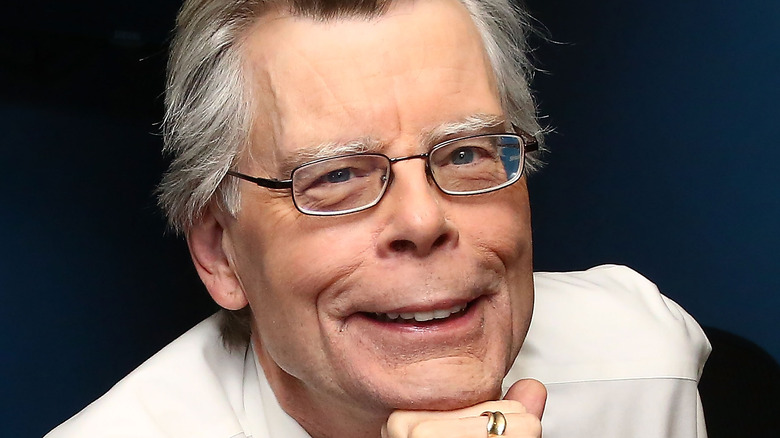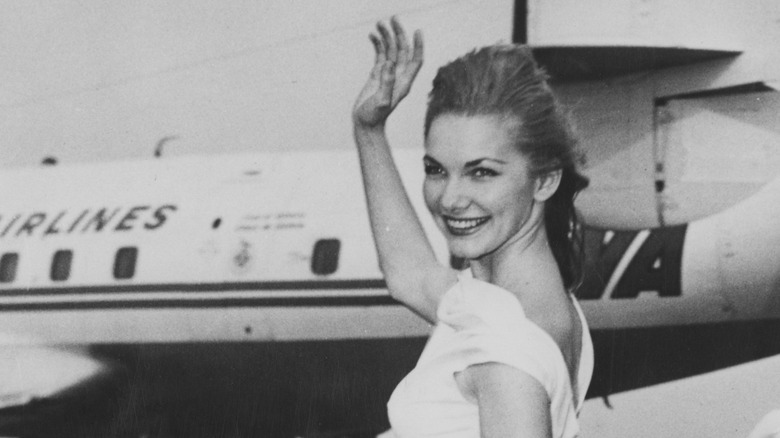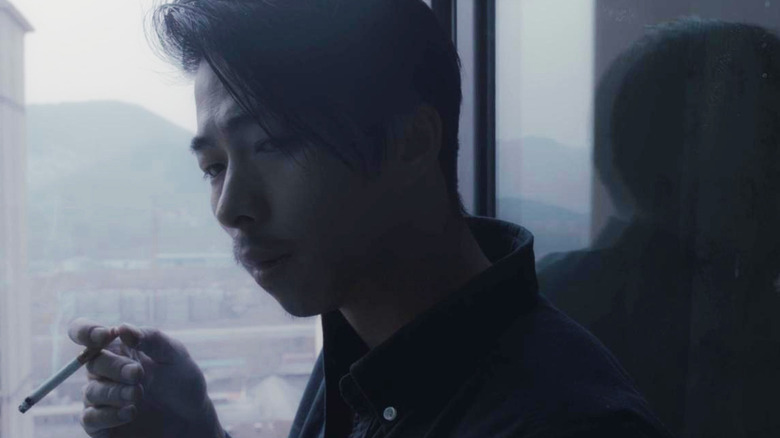12 Filmmakers Who Only Made One Movie
Some filmmakers amass a prolific body of work and churn out movies with impressive speed. Others take a more meticulous approach and spend far longer planning and crafting each film, resulting in smaller but no less impressive filmographies. Standing apart from both camps is a rare breed of one-and-done filmmakers who called it quits after a single spin in the director's chair, whether by choice or by reasons beyond their control.
Plenty of unknown filmmakers have made individual movies at an independent level that failed to find an audience and subsequently moved on from the field. Far more noteworthy, however, are when established entertainment industry figures try their hand at directing only to never touch the craft again. Whether they were met with failure and moved on, or knocked it out of the park on their first go around and didn't feel the drive to direct again, these 12 notable filmmakers have the shortest filmographies possible.
Gerald Kargl – Angst
Austrian filmmaker Gerald Kargl is far from a household name, but the title of his one and only feature film will be familiar to hardcore horror fans: "Angst." Released in 1983, "Angst" meticulously tracks the activities of a deranged psychopath in the immediate aftermath of his release from prison. The bulk of the film consists of him breaking into a family's home, holding them captive, tormenting them, and eventually killing them.
The events are depicted with hyper-realism while utilizing a bold, energetic cinematography style that makes the film look unlike any other horror film. The killer never speaks aloud in the film, but the audience is treated to a constant narration of the thoughts that run through his head in real time. The character was actually played by a combination of two different actors. The voice-over narration was performed by Robert Hunger-Bühler, while the manic physical performance on-screen was performed by Erwin Leder, who is best known for his role in "Das Boot."
"Angst" has a cult following amongst audiences who like their horror especially disturbing but it was doomed to a niche, elusive, and somewhat obscure fate from the get-go. With the film getting banned in several countries and landing X or XXX ratings elsewhere, its chances of success were slim to none. That unfortunate state of affairs is reflected in Kargl's narrative filmmaking career coming to an immediate end.
Rémy Belvaux - Man Bites Dog
"Man Bites Dog" is both a dark satire and a disturbing serial-killer thriller simultaneously. Though it preceded pioneering found footage films like "The Blair Witch Project" and "The Last Broadcast" by several years, "Man Bites Dog" is presented as documentary footage captured by a camera crew following a charismatic murderer. The documentary crew starts out as passive observers, but they slowly become more complicit and more directly involved in their subject's crimes over time.
Made for an extremely low budget, rumored to be around $15,000, "Man Bites Dog" was a moderate success despite facing troubles from countless ratings boards, being slapped with an NC-17 rating in the U.S., and being banned abroad. Critical reception was strong as well, with the film even taking home two awards at the prestigious Cannes Film Festival, including the youth award seeing as the filmmakers behind it were just a couple of young film school hooligans.
Everything pointed towards "Man Bites Dog" being the start of long and successful careers for those involved, but this was not the case. With the exception of star Benoît Poelvoorde who went on to have a successful acting career that remains ongoing to this day, the vast majority of the cast and crew of "Man Bites Dog" largely dropped off the map altogether. Co-directors Rémy Belvaux and André Bonzel never worked together again, and neither ever directed another feature film. In 2021, Bonzel had a limited release in France for his documentary "Flickering Ghosts of Loves Gone By." Belvaux spent the next 14 years earning a reputation as the best advertising director in France before his death in 2006 at the age of 38.
David Byrne - True Stories
As a solo artist and as the frontman of the New Wave genre-defining band Talking Heads, David Byrne is a rightfully celebrated musician. Most people don't think of Byrne as a filmmaker, but after getting his start by directing several Talking Heads music videos, he made his one and only narrative feature film in 1986, "True Stories."
The film incorporates plenty of Talking Heads music, mostly consisting of brand new songs, but "True Stories" is not a concert movie like their earlier "Stop Making Sense" or Byrne's later "American Utopia." Instead, the film is a satirical look at small-town life. Byrne himself stars as an unnamed visitor to the fictional town of Virgil, Texas as they hold their sesquicentennial. With Byrne's character serving as a fourth-wall-breaking narrator, the plot essentially consists of a series of vignettes examining different aspects of the town and the people in it, who are played by the likes of John Goodman and monologist Spalding Gray.
For many years, the film was difficult to get a hold of, but it finally became widely available when it was inducted into The Criterion Collection. Though the reception to "True Stories" has turned greatly in its favor over the years, it was not particularly well-received upon release and only brought in a measly $2.5 million at the box office. Byrne continued his music career and dabbled in a few additional music-directing projects throughout the early '90s, but he never made another narrative.
Phil Tippett - Mad God
Phil Tippett is a case of a filmmaker becoming so obsessed with a single project that it consumed the entirety of his creative output for decades. Tippett has a legendary reputation in the field of special effects. As a stop-motion animator and effects supervisor, Tippett helped create some of the most iconic films ever made, including "Star Wars," "Indiana Jones and the Temple of Doom," and "Jurassic Park" amongst others.
After years of working for the biggest filmmakers in Hollywood, Tippett became interested in directing himself. In 1990 he began working on "Mad God," but the film wouldn't be completed until 31 years later. "Mad God" is an extremely graphic stop-motion, live-action hybrid that follows an unnamed central character on a violent and surreal descent through a horrific fantasy world. When the film was finally unveiled to the world, it was hailed by many as a masterpiece and as a monumental achievement in stop-motion animation, including by such prominent film figures as Guillermo del Toro, who said, "Phil is a genius. His film is amazing."
The meticulous and exacting nature of the production of "Mad God" precluded Tippett from directing anything else throughout the entire three decades that he was tinkering with it. While continuing his career in the SPFX field, "Mad God" moved in and out of production over the years, only to be resurrected with renewed focus with the help of a Kickstarter campaign launched in 2012. The goal of $40,000 was not only met but tripled and, after another decade spent working on the project, the film was finally completed and released in 2021.
Tom Stoppard - Rosencrantz & Guildenstern Are Dead
Czech writer Tom Stoppard first rose to prominence in the world of theater. His prolific output helped earn him a reputation as one of the best playwrights of his generation. Beginning in the 1960s, Stoppard became involved as a screenwriter in the film and television industries. Stoppard is responsible for the screenplays of many acclaimed films like "Shakespeare in Love," "Anna Karenina," "Empire of the Sun," and "Brazil." The ease at which he transitioned from playwrighting to screenwriting and the speed and frequency of his work makes it all the more surprising that Stoppard gave up directing for good after his first attempt.
Stoppard wrote and directed 1990's "Rosencrantz & Guildenstern Are Dead," adapted from one of his most popular plays. The film takes the story of William Shakespeare's "Hamlet" as its basis, except instead of following the main drama of that plot, it makes two of the play's minor characters the central focus. Tim Roth and Gary Oldman play the two titular characters, and the film examines their deterministic fate as they lack free will.
Though the play was extremely popular, many critics at the time of release found it to be a story that wasn't suited to the big screen. Roger Ebert gave the film an extremely harsh review, praising the original play while calling the film "boring and endless ... this material was never meant to be a film, and can hardly work as a film." Negative reviews combined with subject matter that didn't strongly appeal to mainstream audiences resulted in the film becoming a massive box office bomb, bringing in under $1 million and sealing Stoppard's fate as a film director.
Richard Pryor - Jo Jo Dancer, Your Life is Calling
Richard Pryor is best known as one of the most famous standup comedians who ever lived. On film, he demonstrated surprising versatility as an actor. After reaching the pinnacle of fame as a comedian in the 1970s, Richard Pryor attempted to make his way into directing in the '80s. He directed his final standup special himself, "Richard Pryor: Here and Now," with moderate success. Then, he took the major leap forward of directing a narrative feature film with 1986's "Jo Jo Dancer, Your Life is Calling."
In addition to directing and co-writing the script, Pryor also plays the titular character of Jo Jo Dancer, a standup comedian who embarks on the self-reflective journey of his life's story after a near-death experience. Though he is playing a character and the film is a work of fiction, the plot parallels Pryor's life closely, including his own near-death experience of lighting himself on fire while in a "drug-induced psychosis."
The film struggled to connect with audiences, and critics were divided over it. Roger Ebert was one critic who took a liking to the film, writing that Pryor, "Has a real gift as a director." Whether it was because of the lukewarm reception or because he only wanted to tell this one deeply personal story, Pryor never exercised his gift as a director again.
Marlon Brando - One-Eyed Jacks
From "A Streetcar Named Desire" and "On the Waterfront" to "The Godfather" and "Apocalypse Now," Marlon Brando is one of the most iconic actors in the history of cinema. Brando was instrumental in popularizing method acting and played a vital role in the shifting landscape of 1950s Hollywood.
Relatively early on in his acting career, Brando tried his hand at directing with "One-Eyed Jacks" in 1961. The plot follows an outlaw duo who become enemies when one stabs the other in the back after pulling off a bank robbery. In addition to directing, Brando also starred in the lead role, acting opposite Karl Malden as his partner turned adversary. This classic Western story is an adaptation of the Charles Neider novel "The Authentic Death of Hendry Jones," with such acclaimed individuals as Sam Peckinpah and Rod Serling of "The Twilight Zone" fame collaborating on the adapted screenplay.
Given Brando's notorious reputation as being unpredictable and difficult to work with as an actor, one might expect that him acting and directing simultaneously would result in disaster, but that wasn't actually the case. "One-Eyed Jacks" turned out quite well, received strong reviews, and was even an Oscar nominee, with Brando himself receiving an Outstanding Directorial Achievement nomination at the Directors Guild of America Awards. The film being so well-received makes it a surprise that he never directed again, but it was clear that acting was and would always remain his number one focus.
Charles Laughton - The Night of the Hunter
When Charles Laughton directed his one and only movie in 1955, he didn't just make a good film, he made one of the best of all time. "The Night of the Hunter" tells the story of Reverend Harry Powell, a serial killer played menacingly by Robert Mitchum, who is on the hunt for $10,000 in stolen cash. A pair of young kids stand in his way, and this villain has no qualms about murdering children. With a style that nearly fits the film-noir genre but a plot that bridges into horror territory, "The Night of the Hunter" is a difficult film to categorize, and audiences of the time weren't ready for it.
"The Night of the Hunter" frequently lands high on official lists of the greatest films ever made, such as the BFI's Sight and Sound poll. However, the reception to the film upon its release couldn't have been more different. It was negatively reviewed by most major outlets, such as The New York Times. Only in retrospect has the tide turned in favor of "The Night of the Hunter" being an all-time great work of cinema.
Charles Laughton had become a successful actor long before he made "The Night of the Hunter." He was best known for starring in the likes of "Mutiny on the Bounty," "The Hunchback of Notre Dame," "I, Claudius," and "Spartacus" amongst dozens of significant roles. Laughton returned to acting after the failure of his directorial debut and never stepped behind the camera again. He passed away in 1962, years before his film was reevaluated and declared a masterpiece. His obituary made no mention of his directorial triumph, only his career as an actor.
Gordon Willis - Windows
Released in 1980, "Windows" is a psycho-sexual thriller about a deranged woman, played by Elizabeth Ashley, who forms a romantic obsession over her neighbor, played by Talia Shire, and resorts to extreme, violent measures to indulge in her fantasies. The script — written by Barry Siegel, who never wrote another movie — is easy to criticize as both misogynistic and incredibly homophobic as it aims to paint sexual attraction between two women as inherently evil.
"Windows" would be easy to forget about altogether as a gross little nugget of the early '80s if not for the otherwise sterling reputation of the man in the director's chair. Acclaimed cinematographer Gordon Willis made "Windows" as his one and only directorial effort shortly after shooting such highly-regarded films as "The Godfather" and its sequel, along with "Annie Hall," "All the President's Men," "Manhattan," and "The Paper Chase," amongst others. His distinctive dark lighting and use of heavy shadows earned him the moniker The Prince of Darkness.
Willis served as his own cinematographer for "Windows," and to his credit, the film does look nice, but everything else about it is abysmal. The film earned nominations in every major category of the first-ever Razzie Awards, including a Worst Director nomination for Willis.
Stephen King - Maximum Overdrive
There have been dozens of movie adaptations of Stephen King's books. Many of them have been great, but a few have turned out less favorably. One of the adaptations with the worst reputation is also the only adaptation that King decided to direct himself: "Maximum Overdrive," based on his short story "Trucks." In a tongue-in-cheek promotional video, King says, "I finally decided, if you want something done right, you ought to do it yourself." After the fact, King would later admit that the production was a complete mess and to being "coked out of his mind" for the duration of the shoot.
The plot follows a group of people who take refuge within the Dixie Boy truck stop after all of the electronic devices in the world come to life and begin killing humans. The eclectic cast includes names like Emilio Estevez and Yeardley Smith, and the all-rock soundtrack was handled by AC/DC. "Maximum Overdrive" was a notorious disaster, and it is no surprise that King never tried directing again. King stuck to writing in the future while making the occasional foray into executive producing with a bit more luck than directing.
Barbara Loden – Wanda
The story of Barbara Loden is a somewhat tragic one. Loden first made a name for herself in theater, starring in a number of prominent roles on Broadway. When it came to the film industry, Loden had far less success. She only appeared in two films, "Wild River" and "Splendor in the Grass." Both appearances were in supporting roles, and both films were directed by Oscar-winning filmmaker Elia Kazan, who Loden would end up marrying a few years later. The only starring film role of Loden's career was also the only film that she wrote and directed: "Wanda."
Released in 1970, "Wanda" was a part of the New Hollywood movement and was one of the only productions of its time with a woman at the helm. The story follows the titular character, who begins the film as a domesticated housewife in the Pennsylvania rust-belt. She decides to leave her husband and children behind and hit the road, where she winds up getting entangled with a bank robber. When viewed from a contemporary vantage point, "Wanda" is often hailed as a feminist masterpiece, but it wasn't met with such reverence at the time of its release. As the Criterion Collection described the film, "American audiences weren't ready for Barbara Loden's 'Wanda' when it premiered in 1970."
Loden attempted to continue directing but was only able to get a couple of shorts made over the following decade. With more time, she may have been able to get another feature off the ground, but she sadly passed away from cancer in 1980 at the age of 48. Her New York Times obituary described her as one of the first women to write, direct and star in a feature film.
Hu Bo - An Elephant Sitting Still
"An Elephant Sitting Still" is a heavy film, and the reality behind it is even heavier. The story of this Chinese drama weaves together the separate plots of four different strangers as they become linked through hardship and through a desire to reach the city of Manzhouli, where there is supposedly an elephant who sits forever still. At nearly four hours long, "An Elephant Sitting Still" is a film that demands patience but can be a deeply rewarding experience, with many critics calling it a masterpiece.
The reason why this remains writer and director Hu Bo's only film is tragic. Shortly after the film was finished and before it had its world premiere, Hu Bo took his own life at the age of 29. Disputes with his producers, who wanted to cut the film down to half its length, are thought to have factored into his actions. The fixations on depression and despair within the film are impossible to miss. When combined with the real-world context of Hu Bo's suicide, the film's themes take on an even bleaker and more crushing sense.
If you or anyone you know is having suicidal thoughts, please call the National Suicide Prevention Lifeline by dialing 988 or by calling 1-800-273-TALK (8255).
